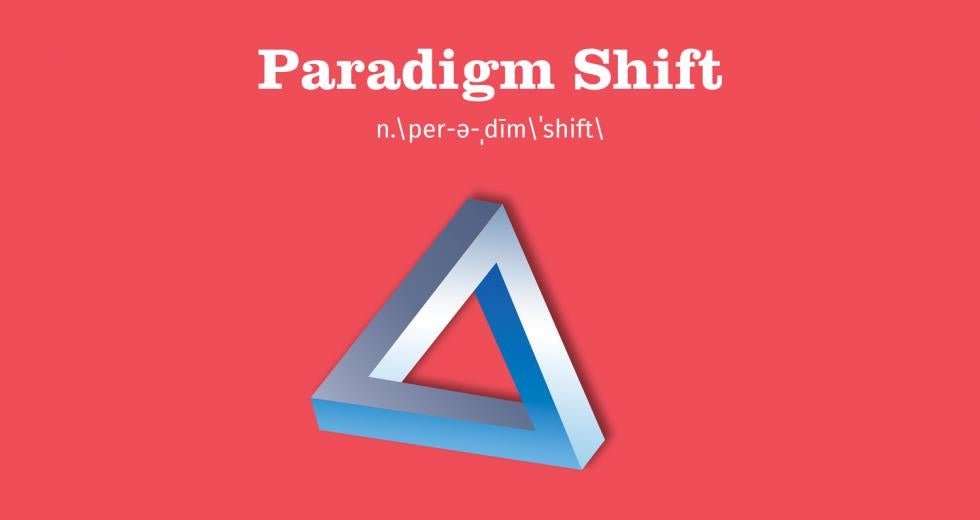Paradigm shifts are a big deal. In science — where the term originated — the process begins with an emerging theory which researchers try to disprove until that theory, accepted as legitimate, dominates a new model of understanding in a certain field. Consider the Copernican sun-centric model of the universe: For millennia, astronomers believed the Earth was the center of the universe until 1543, when Nicolaus Copernicus published a theory that the sun was the center of the solar system. This new theory, unable to be disproven, marked the dawn of a new paradigm.
However, true paradigm shifts are usually only identified in retrospect. “Trying to predict a paradigm shift is an act of prophecy,” says UC Davis Science and Technology Studies Program Director Colin Milburn. In other words, it’s presumptuous and potentially pompous, and it even ranked No. 1 on Forbes’ 2018 list of Ten Buzzwords That Make You Sound Like An Idiot. Yet, we’ve all heard the word as business jargon before, often when describing startups (“Shark Tank,” anyone?).
The Buzz
While scientists are averse to paradigm shifts, Milburn says the rhetoric of disruption in business is hugely dominant. Changing the rules of the market is a coveted status in the startup world.
Related: Buzzwords – Deep Dive
“A perfect example of a disruptive play would be what Uber did to the whole taxi industry segment. …You could even use paradigm shift,” says John Peters, leader of the Sacramento Angels investment group.
Peters reviews over 300 startup applications and listens to 16 entrepreneur pitches with the investment group every year, and says that the term paradigm shift comes off a little fluffy. “Disruptive innovation feels like it’s more descriptive,” Peters says.
The Word
However, there might be exceptions. Do you have to rely on advanced physics to explain your business concept? Will your company make segments of the industry obsolete? Well, then your product might qualify, but use paradigm shift at your own peril. “It’s not going to add a heck of a lot to an application to use paradigm shift … It’s not the heart of the value proposition,” Peters says.
Entrepreneurs who reach the pitching stage should know better than to rely on buzzy jargon to sell their concept. “The most important thing is to focus on the customer value,” Peters says.



